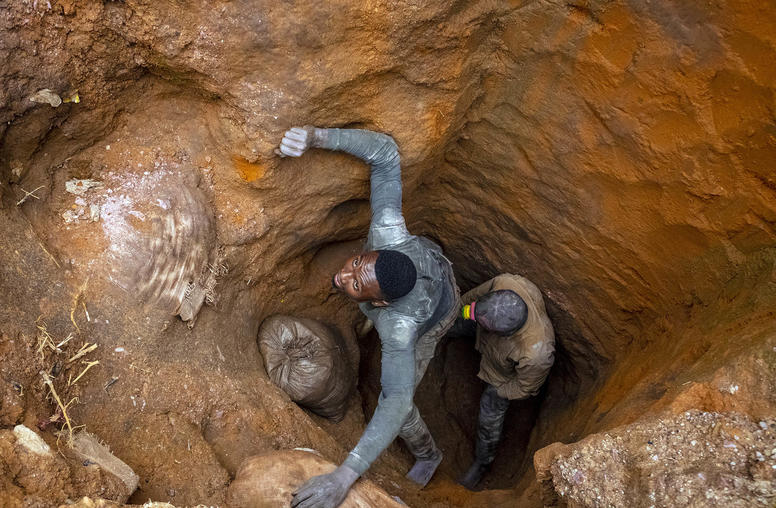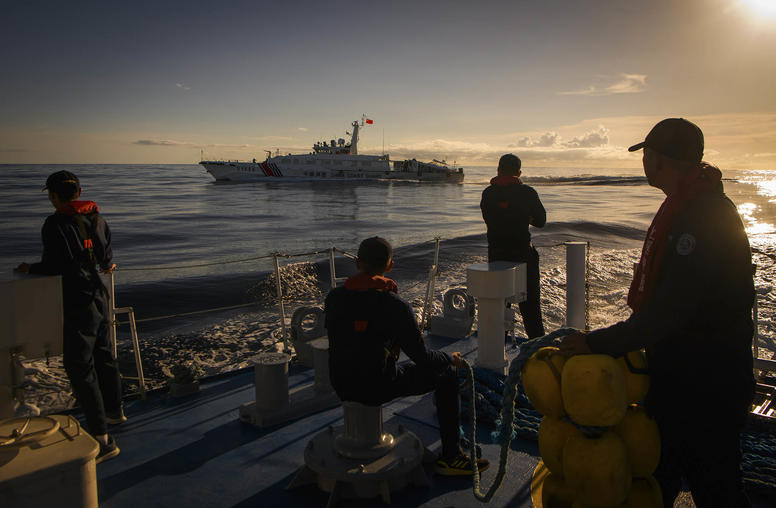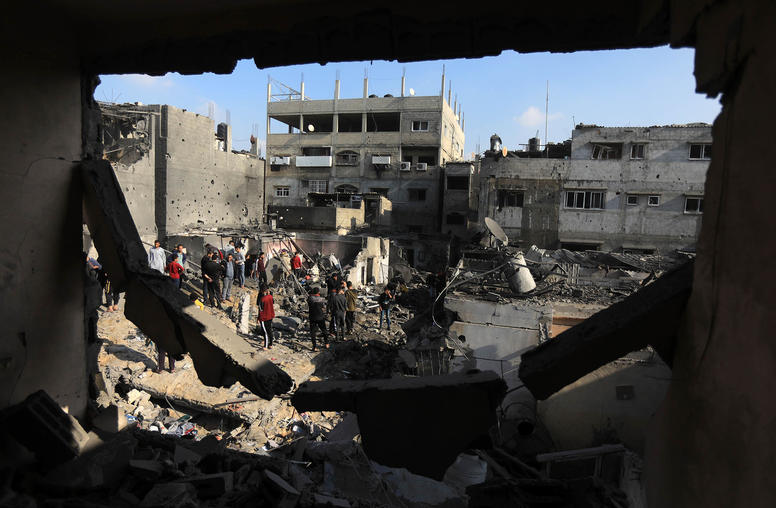Publications
Articles, publications, books, tools and multimedia features from the U.S. Institute of Peace provide the latest news, analysis, research findings, practitioner guides and reports, all related to the conflict zones and issues that are at the center of the Institute’s work to prevent and reduce violent conflict.

Amid a Changing Global Order, NATO Looks East
As NATO celebrates its 75th anniversary this year, the Euro-Atlantic security alliance continues to deepen its engagement with Australia, Japan, South Korea and New Zealand, collectively known as the IP4. NATO has collaborated with these countries since the early 2000s, but Russia’s war against Ukraine, security challenges posed by China and renewed strategic competition have led to increased engagement. As the war in Ukraine grinds on and U.S.-China competition shows no sign of abating, the United States has much to gain from collaboration between its allies and partners in the Euro-Atlantic and Indo-Pacific.

Iran’s Attack and the New Escalatory Cycle in the Middle East
The Middle East is entering a new phase after unprecedented attacks by Israel and Iran during the first two weeks of April. Robin Wright, a senior fellow at USIP and the Woodrow Wilson Center who has covered the region for a half century, explores what happened, the strategic implications, the political context and the divided world reaction.

Whither NATO at 75?
NATO marked its 75th anniversary last week at a celebration in Brussels. While Russia’s invasion of Ukraine has injected the alliance with new life and resolve, the 32-member collective security pact is also wrestling with its future in a world of growing great power competition. In 2022, NATO formally identified for the first time China as a challenge to its interests and collective security. As NATO continues to support Ukraine and look to future global challenges, it also has internal issues to address, ranging from individual member defense spending to the problems posed by the need for collective decision-making among 32 members.

The Growing Flashpoints Between the U.S. and Iran
Tension between Washington and Tehran has been a growing undercurrent of the war in Gaza, even as both countries tried to prevent it from sparking a direct confrontation during the first six months of fighting. Robin Wright, a joint fellow at USIP and the Wilson Center, explores the evolving flashpoints in the world’s most volatile region as well as the challenges for U.S. diplomacy, the new triggers for a wider regional conflagration and the historical backdrop.

How ‘Traumatic Decarbonization’ Can Impact Political Stability and Peace
The process of decarbonization — that is, the replacement of fossil fuels with non-hydrocarbon-based forms of energy — is essential for the world to meet its climate goals. But in many fragile oil-producing states, hydrocarbon revenues are not just central to national economies. They also bind together the political system through elite revenue-sharing pacts. The rapid, unplanned decarbonization of these countries would spark political crisis, a process known as “traumatic decarbonization.”

Why Africa’s Critical Minerals Are Key to U.S. National Security
A new USIP report emphasizes the importance of the United States government being engaged in the African critical minerals sector if it is to diminish its dependence on China and fortify its national security and foreign policy interests.

U.S., Japan, Philippines Strengthen Strategic Bonds to Counter China
Next week’s U.S.-Philippines-Japan summit comes against the backdrop of heightened tensions between Manilla and Beijing in the South China Sea, known as the West Philippines Sea in the Philippines. Last month alone saw two incidents of China’s so- called “gray zone” activities, with Chinese ships colliding with Philippines Coast Guard vessels on March 5 and blasting a Philippines supply boat with a water cannon on March 23. These disputes in the West Philippines Sea — an issue on which U.S., Japanese and Philippine interests closely align — will feature prominently when President Joe Biden, Philippine President Ferdinando Marcos Jr. and Japanese Prime Minster Fumio Kishida meet in Washington on April 11.

As Hezbollah-Israel Tensions Simmer, Lebanon’s Domestic Crises Drag On
Nearly six months after Hamas’s October 7 attack on Israel, tensions in two key flashpoints — Lebanon and Syria — continue to rise with significant Israeli airstrikes in both countries, leading to the highest death tolls in each country since October 7. Amid these rising tensions, ongoing clashes between the Lebanese militant group Hezbollah and the Israel Defense Forces (IDF) threaten to escalate into a wider war. At the same time, Lebanon continues to reel from a series of crises that have unfolded over the past four and a half years, highlighting Lebanon’s perilous position as the Gaza conflict continues to reverberate throughout the region.

Moscow Concert Hall Attack Will Have Far-Reaching Impact
On Friday, terrorists attacked the Crocus City Hall outside Moscow leaving 140 people dead and 80 others critically wounded. Soon after, the Islamic State claimed responsibility for the attack. The terrorist group, which is headquartered in Iraq and Syria, has several branches, including in South and Central Asia. Press reports suggest the U.S. government believes the Afghanistan-based affiliate of the Islamic State, ISIS-Khorasan (ISIS-K), was behind the attack. The Biden administration has publicly noted that it had warned the Russian government of the terrorism threat in early March in line with the procedure of “Duty to Warn.”

What Does the U.N. Cease-Fire Resolution Mean for the Israel-Gaza War?
On March 25, the United Nations Security Council (UNSC) passed Resolution 2728, calling for an “immediate” cease-fire in Gaza. The motion’s passage came after weeks of back and forth and posturing among the UNSC’s permanent and rotating members. The exact phrasing of the resolution and its relevance to the situation on the ground, as well as bilateral and multilateral relations — particularly U.S.-Israel ties — have been the subject of heavy public and media attention since Monday, raising questions about the resolution’s subtext, intent and limitations. USIP’s Robert Barron looks at these questions.